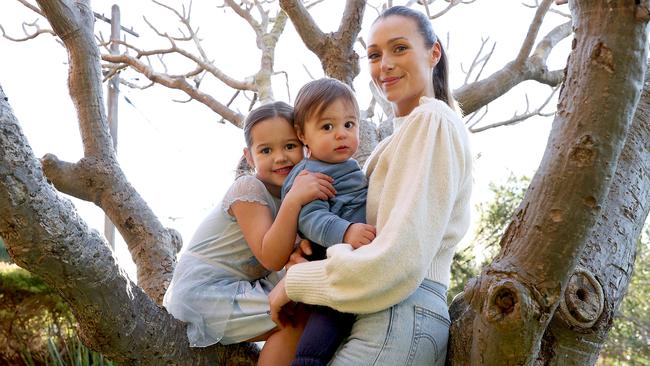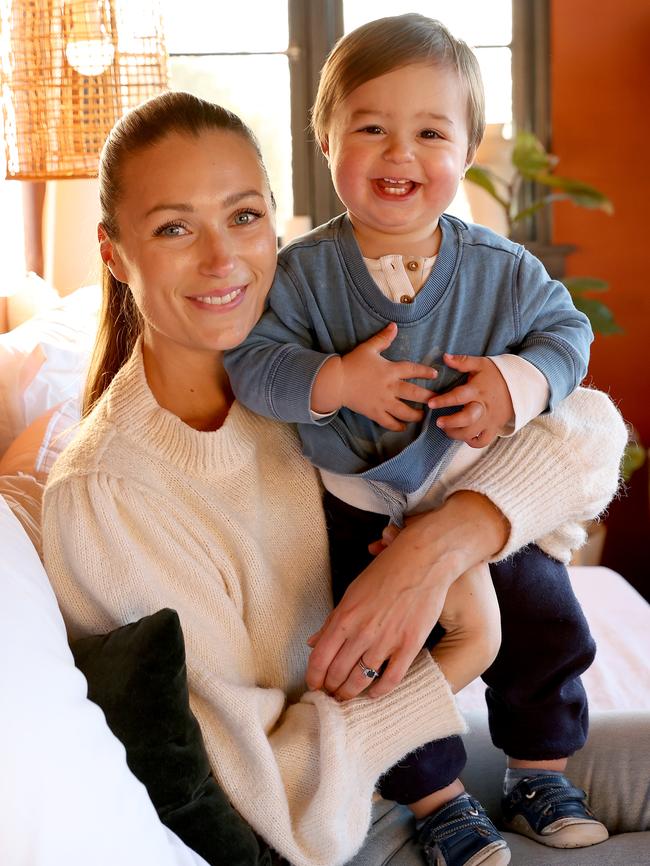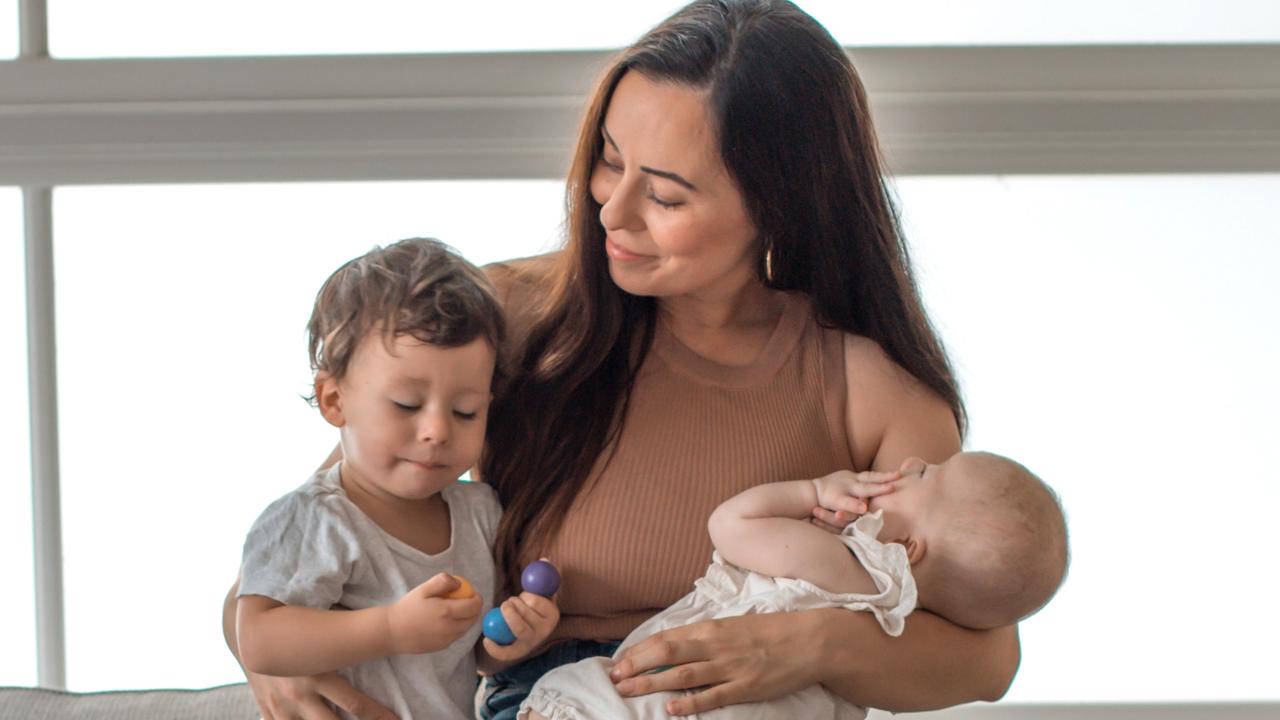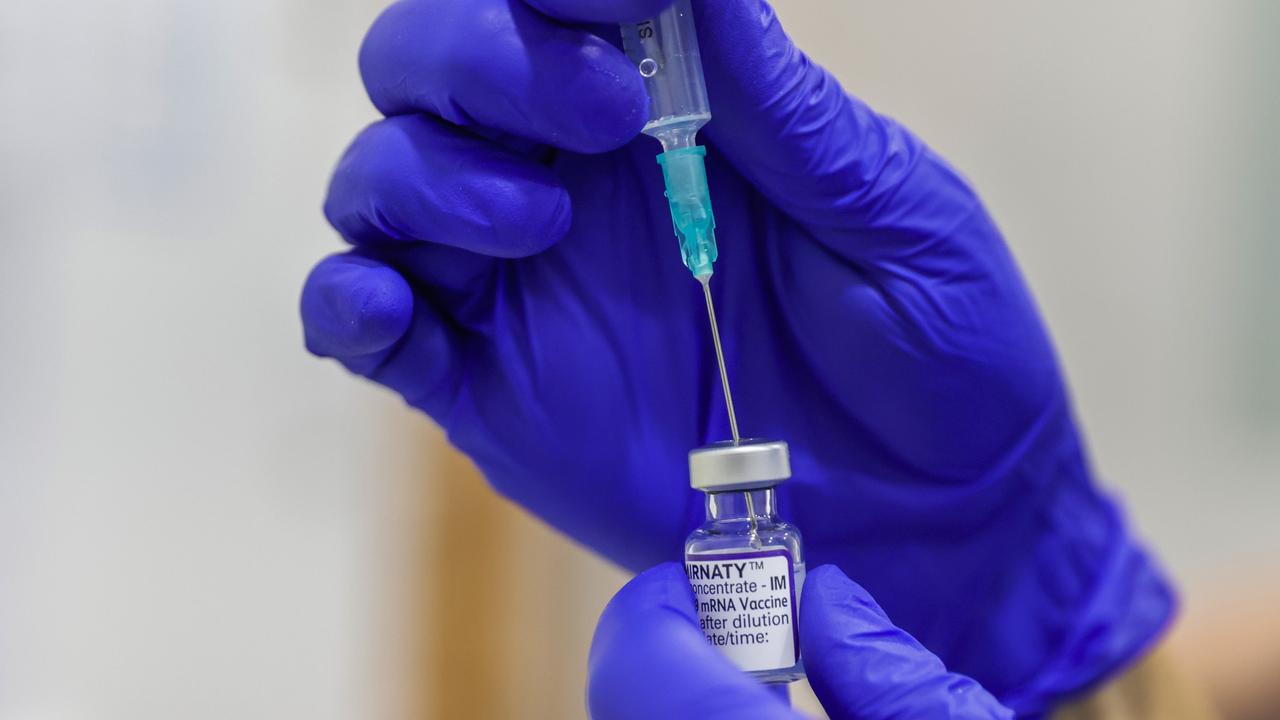Demand for postnatal depression help rises as lockdown affects new mums
Postnatal depression affects as many as one in five new mothers and the Covid lockdowns has led to an increase in cases. Sydney mother Alexandra Parker is one of them.
NSW Coronavirus News
Don't miss out on the headlines from NSW Coronavirus News. Followed categories will be added to My News.
Repeated pandemic lockdowns are hitting new mums hard, with a spike in the incidence of post-natal depression.
Demand for services for post-natal depression offered at The Gidget Foundation are at their highest since the foundation was set up. PND affects as many as one in five new mothers and one in 10 new fathers.
Arabella Gibson from The Gidget Foundation said waitlists for their year-long specialist treatment had blown out and services provided were up 127 per cent on last year.
The foundation was set up after the suicide death of a young Sydney mother nicknamed Gidget, who suffered from undiagnosed postnatal depression.
“It is the highest demand ever and I think just the absolute isolation of lockdown is making new mums and dads feel very fearful,” she said.
“Bringing a child into the world as it is now, there is just so much anxiety at the moment.
“If we look at Melbourne’s 122-day lockdown as the example, we know that parents are now facing a 19 week waitlist for our services there. I dread to think where we are headed with the current lockdowns across our two most populous cities.
“As the pandemic continues, we are seeing more people finally seeking help — but from their experiences of lockdown last year.
“So, the Covid-lag is real — it’s where help-seeking, diagnosis and referral is being delayed through isolation and lockdown. Parents have lost their village and the loneliness of feeling so alone in this journey is causing genuine mental ill-health.”

Cammeray mother of two Alexandra Parker sunk into crippling postnatal depression last May after the traumatic birth of her second child.
“I had a traumatic birth with Jack, his heart rate dropped and he had the whole cord wrapped around his neck and, because his heart rate dropped so much, I had to get him out in one push,” she said.
“I don’t know how I did it but the poor thing had to be resuscitated. We were in hospital for five days and it was a crazy time and it sent me on a bit of spin into a deep devastation.
“My husband had a very busy job with crazy hours, so with no support at home, my post-partum anxiety and depression raged.
“The heart-wrenching sadness I felt everyday was sometimes so acute it was hard to process.”

Her mother, based in the UK, was also prevented from coming to Australia to help her daughter.
“I was isolating myself from everyone, I didn’t want to tell anyone, I didn’t want to see anyone and you begin to retract from anyone,” she said.
“Jack had really bad reflux and was waking up every single hour. I was a shell of a human. With minimal sleep I couldn’t even string a sentence together, I found even driving a car difficult.”
She said the condition was dangerous for her and her children.
“Normal daily functions like cooking were a challenge because I would leave the stove on, or leave the front door open, I didn’t function as a normal human being,” she said.
After seeing her general practitioner and getting help from the Gidget Foundation, Ms Parker has made a turnaround.
“Mums should try to seek help earlier,” Ms Gibson said.
“Talk to friends and family openly. Explain how they are feeling challenged. Talking can be a very effective way of releasing emotion and taking the pressure off. And, if someone does confide, please just listen. We don’t need to solve things immediately. Allowing a judgment-free outlet is so helpful in supporting those we love and often underestimated.
“New parents are struggling without the usual supports and feel ashamed because ‘others might be doing it tougher’ so they are fearful of seeking out help.”
For more information, to go gidgetfoundation.org.au/get-support/covid-19-support



